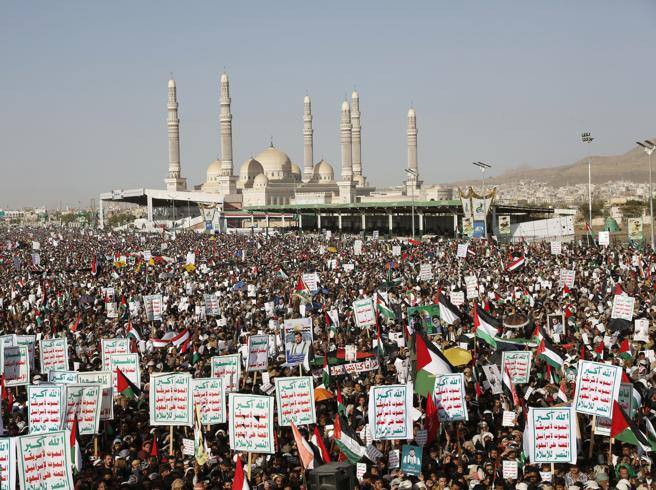FROM OUR CORRESPONDENT
BEIRUT – There have already been three attacks on Houthi military positions in Yemen: Thursday evening, Friday evening and Saturday afternoon. Over a hundred missiles the first time, about twenty the second time after we checked what was left, and at least a few Tomahawks yesterday afternoon. The US and Britain are bombing “to defend the safety of navigation in the Red Sea”. The Houthis disrupt maritime traffic to help “the Palestinian brothers in Gaza.”
Between one attack and the next, Washington repeats that it does not want war. “We will ensure we respond to the Houthis if they continue this outrageous behavior,” President Joe Biden said, taking on the role of world policeman. And then he added cryptically: “We privately delivered a message to Iran,” a major sponsor of the Houthis. “We have trust. We are ready.”
There is no question who has the bigger stick. At the mouth of the Red Sea, the planet's largest military and economic power is facing off against the rebels who have taken control of large parts of a country that has been reduced to the uttermost.
The American fleet, supported by bases in the Arabian Peninsula, Africa and, if desired, even in the Mediterranean, has satellites, aircraft carriers, jets, spy planes and precision weapons. All Gulf states have given their airspace to the US to carry out the attacks. The only candidate for exit is Oman, which has always feared infection from the civil war in its neighboring country and has traditionally maintained good relations with Iran.
The guerrillas with “outrageous behavior” instead fight with plastic slippers and the keffiyeh (the traditional scarf) tied around the waist like a skirt. Their missiles are often inaccurate and defective, although they have a respectable arsenal, mostly supplied by Tehran. As a result, they managed to reroute thousands of merchant ships, increasing transportation costs and increasing the risk of inflation across half the world.
–
Two rockets were fired from the coastal city of Hodeidah at a ship in the Gulf of Aden yesterday afternoon. Houthi leaders had promised a “strong and effective response” to the march in the capital Sanaa. They chanted “Death to America and Israel” and held up large flags of Palestine and Lebanon's Hezbollah, other allies of Iran. It is not clear whether the two Houthi rockets exhausted their thrust or missed their target, but they did not hit the target. A few hours later the backlash came. American Tomahawk missiles exploded exactly where the Yemeni ones had been fired.
No matter how powerful the American war machine may be, it is fighting a threat as poorly structured and flexible as that of the “Partisans of God,” Ansar Allah, as the Houthis are called by their real name. It seems as if we are dealing with the balance of power in Afghanistan, where the Taliban won in the end. Yesterday the Houthis showed their courage again. “The American attacks had no impact on our ability to block maritime traffic,” said Mohammed Abdulsalam, one of the spokesmen for the movement promising a new attack.
Satellite images show that there are almost no ships in the Red Sea heading to European ports. They preferred to circumnavigate Africa, a longer but currently safer route. Two American Navy Seals have been missing since yesterday. They were supposed to search a seemingly civilian boat, but the waves overwhelmed them. They're still looking for them.

